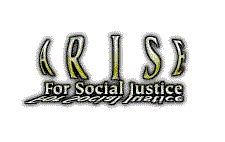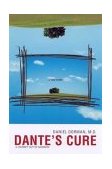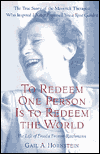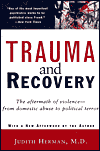Check our Email Discussion List Archive for news articles and other recent resources, starting in 2006.
Our Archive of Discontinued Topica Email Discussion List also has news articles and other resources from 2001-2006.
Check our Latest Web Links Feed on del.icio.us for a ton of additional recent links -- articles, news, websites. Updated regularly, recent items appear on the sidebar to the right.
CONTRIBUTE LINKS TO OUR SITE! Join del.icio.us. Tag links with for:freedomcenter to submit them to our link feed.
Our radio page has a number of downloadable audio recordings on mental health and psychiatric survivor topics.
PsychRights run by Alaska lawyer Jim Gottstein has an excellent and up to date listing of relevant articles and news items. (check under 'Articles') on left side.
Alliance for Human Research Protection is a research and policy analysis site tracking pharmaceutical and psychiatric corruption and fraud. Great email alert list that follows developments in the news.
NYAPRS list has a lot of interesting posts especially regarding mh policy, focused on NY state. You can read the archive online.
http://www.willhall.org - Will Hall's website!
Subscribe to our newslink rss feed by adding this url to your rss reader: http://del.icio.us/rss/freedomcenter
Activist and Advocacy Organizations
Support Coaltion International unites more than one hundred grassroots sponsoring organizations (including Freedom Center) in 14 nations to defend human rights in mental health and promote alternatives. Has an excellent links page.
NARPA is the National Association for Rights Protection and Advocacy, comprised of psych survivors, advocates, civil rights activists, mental health workers, and lawyers. NARPA is committed to abolishing all forced treatment laws and ensuring treatment is based on choice and civil rights. Includes on-line newsletter, the Rights Tenet.
Check out the Directory of Consumer-Operated Programs and Activities in Massachusetts put together by M-POWER
As of March 2006  Arise for Social Justice is a low-income rights, anti-oppression membership organization in western Massachusetts. Arise was started in 1985 and currently has an Economic Justice Committee, an Electoral Committee, a Peace Committee, "The VOICE", a Community Newspaper, and the W.I.S.E. Committee (Women In Support of Each Other).
Arise for Social Justice is a low-income rights, anti-oppression membership organization in western Massachusetts. Arise was started in 1985 and currently has an Economic Justice Committee, an Electoral Committee, a Peace Committee, "The VOICE", a Community Newspaper, and the W.I.S.E. Committee (Women In Support of Each Other).
National Harm Reduction Coalition "fosters alternative models to conventional health and human services and drug treatment; challenges traditional client/provider relationships; and provides resources, educational materials, and support to health professionals and drug users in their communities to address drug-related harm." Works to promote needle exchange programs, end jailing drug users, expand voluntary services, and stop jail expansion. Freedom Center is a member of the Massachusetts Statewide Harm Reduction Coalition.
Mental Disability Rights International documents conditions, publishes reports on human rights enforcement, and promotes international oversight of the rights of people with mental disabilities. MDRI takes action against human rights abuses against people labeled with psychiatric disabilities, including incarcerated in mental asylums, world-wide in such place as Kosovo, Paraguay, and Mexico.
People Who is an excellent website run by Silvia Caras with a wealth of information on psychiatric survivor issues. Sylvia's email information list, IRIS, is one of the best and a great source of news, studies, and other information.
Justice For Woody is devoted to Robert Woodward, a Vermont pacifist who was killed by Brattleboro police in December 2001. Police said he charged them with a knife, despite 18 witnesses who state otherwise. Woody was in an extreme state of consciousness that was described as "suicidal" and "psychotic," and fearful stereotypes about the 'mentally ill' appear to play a central role in this tragedy.
The Law Project for Psychiatric Rights is an Alaska non-profit working on legal efforts and individual legal representation. They aim "to promote and implement a legal campaign in support of psychiatric rights akin to what Thurgood Marshall and the NAACP mounted in the 40's and 50's on behalf of African American civil rights." Great links and resources, including a legal essay on how forced medication court hearings are a sham.
Alliance for Human Research Protection is a national network of lay people and professionals dedicated to advancing responsible and ethical medical research practices, to ensure that the human rights, dignity and welfare of human subjects are protected, and to minimize the risks associated with such endeavors. Excellent news and in-depth resources on fraud in psychiatric drug science, including anti-depressants.
GID Reform Advocates works for reform of the psychiatric classification of gender diversity as mental disorder, including abolition of homophobic and sex-phobic Gender Identity and Transvestite Fetishism disorders from the DSM. GIDRA works to ensure that transgendered people recieve support for sex reassignment surgery without the harmful stigma of a psych diagnosis. Also includes links to other groups working for gender diversity rights in psychiatry.
Disability Law Center is the MA law firm funded by the federal government's Protection and Advocacy program to advocate for patients' rights. Every state has a PAIMI agency, and their services are free to people. Call 1-800-872-9992 weekdays before noon for an intake interview on your case.
M-POWER is the statewide Massachusetts consumer run mental health advocacy and human rights organization that Freedom Center is part of.
Mad Nation is an excellent Canadian website for "people working together for social justice and human rights in mental health."
Mad Brighton is a UK "forum that will have a physical presence where experiences and dreams of madness may be shared. A de-stigmatised space where we will learn and teach. A forum which will not end when the doors of the venue close. Through images, and texts, and music, through the material and psychic fabric of our interactions, through creating opportunities: we hope to delegitimise exclusion and foster a supportive community."
 National Empowerment Center, headed by schizophrenia survivor and psychiatrist Dr. Dan Fisher, promotes the vision of complete recovery for people diagnosed with severe mental illness. They have a toll free info line at 800-POWER2U (800-769-3728).
National Empowerment Center, headed by schizophrenia survivor and psychiatrist Dr. Dan Fisher, promotes the vision of complete recovery for people diagnosed with severe mental illness. They have a toll free info line at 800-POWER2U (800-769-3728).
National Mental Health Consumers' Self-Help Clearinghouse is a consumer-run national technical assistance center serving the mental health consumer movement. We help connect individuals to self-help and advocacy resources, and we offer expertise to self-help groups and other peer-run services for mental health consumers.
The Alliance for Injured Workers is an advocacy and support group for workers hurt on the job, including info about workers' comp insurance and an excellent Injured Workers Survival Guide with a wealth of resources.
Safe Passage provides non-judgmental support, shelter, counseling, and an abundance of resources to women, children, and families affected by domestic violence in Hampshire County. Safe Passage offers a free Tuesday support group for women who have experienced domestic violence, and also a free Wednesday support group for women with disabilities who have experienced domestic violence.
The Information Collective is a grassroots clearinghouse of research devoted to bridging society's information gap. The Information Collective is working to create a reliable and comprehensive information source to supplement traditional news media, to make academic information accessible, and to assist activist and popular education initiatives. The Information Collective contributed to the formation of the Freedom Center's campaign to end mental health screenings.
First Person Accounts
The federal government's 2000 National Council on Disabilities Report: From Privileges to Rights: People Labeled with Psychiatric Disabilities Speak for Themselves is an incredible and indispensible testimony of the second-class citizenship and routine mistreatment faced by people labeled with 'mental illness.' Includes statements by many psychiatric abuse survivor movement leaders, who worked very hard under Clinton to get this report released.
In the 1970's Dave Burns lived for several years at the Philadelphia Association therapeutic communities in London, including Kingsley Hall, where he knew and spent time with infamous radical Scottish psychiatrist R.D. Laing. Dave's essay about this incredible experience describes in detail the people who lived in these experimental safe houses and the kinds of healing that took place there.
Teenage Lobotomy is an activist zine looking for submissions on the incarceration of youth in psych facilities and coercive behvioral modification schools. Run by youth activists Nick, Sarah, and Michael, the organizers collaborate with the Icarus Project and are initiating activist efforts to support incarcerated teens.

Dante's Cure: A Journey Out of Madness by Dr. Daniel Dorman is an account of a seven year therapy process that guided a mute and catatonic patient out of her suffering and to full recovery -- without any psychiatric medications whatsoever. The book "reveals how madness is inherent to the human condition and therefore ought to be treated as such. To restore patients’ trust in their power to recover, rather than robbing them of their agency in the name of medical knowledge, is the true moral of this remarkable journey out of madness."
 Gail Hornstein is a Professor of Psychology, Mount Holyoke College, vocal ally of the psychiatric survivor movement, and an active organizer with the Freedom Center. She is author of the biography of Frieda Fromm-Reichman, and her Chronicle of Higher Education article "Narratives of Madness: Voices from Within" describes writing by patients as "a kind of protest literature, like slave narratives or witness testimonies." Gail recently called on therapists and society in general to listen to the voices of people labeled mentally ill. Her Bibliography of First-Person Narratives of Madness has more than 500 references to published personal accounts of 'mental illness.'
Gail Hornstein is a Professor of Psychology, Mount Holyoke College, vocal ally of the psychiatric survivor movement, and an active organizer with the Freedom Center. She is author of the biography of Frieda Fromm-Reichman, and her Chronicle of Higher Education article "Narratives of Madness: Voices from Within" describes writing by patients as "a kind of protest literature, like slave narratives or witness testimonies." Gail recently called on therapists and society in general to listen to the voices of people labeled mentally ill. Her Bibliography of First-Person Narratives of Madness has more than 500 references to published personal accounts of 'mental illness.'
Oryx Cohen's Masters thesis in Public Administration is a very readable, concise overview of the consumer/survivor movement and a critique of the mental health system, as well as being a quantified study of alternative recovery. Download "Psychiatric Survivor Oral Histories: Implications for Contemporary Health Policy"(202K). It was also published in the Journal of Humanistic Psychology, vol 45, #3, Summer 2005 as How Do We Recover? An Analysis of Psychiatric Survivor Oral Histories" (11 meg download).
Nancy Foley wrote a powerful account of her stay at Providence Hospital that appeared as the cover story in the Valley Advocate weekly newspaper 03/07/02. You can also read the supportive Letters to the Editor that appeared in response from the Freedom Center and from a local psychiatric nurse.
Maia Duerr's thesis "Hearing Voices: Resistance Among Psychiatric Survivors and Consumers" is based on ten interviews with activists, looks at common roots with other emancipation groups (including the civil rights movement), and discusses resistance strategies. The full 100 page version (500 KB) and a 10-page shorter version (50KB) are both available for download as PDF files.
Check out Alexandra Adame's master's thesis Recovered Voices, Recovered Lives: A Narrative Analysis of Psychiatric Survivors' Experiences of Recovery". Alex works closely with Gail Hornstein and this is a great detaild academic analysis of the dominant psychiatric narrative and how personal experience challenges it.
Ron Bassman's essay "Overcoming the Impossible: My Journey Through Schizophrenia" was featured in the Feb 2001 issue of Psychology Today and discusses his recovery and work as a leader in the psych survivor movement.
Paul Levy had a powerful experience of light while meditating that landed him in an abusive mental hospital, where he received a "bipolar" label and was told he had to be on medications the rest of his life. Instead, Paul deepened his commitment to spiritual practice, working with some of the greatest Tibetan Buddhist teachers. He created an entire teaching and healing approach called "Awakening In The Dream" based on the realization that we are all dreaming a single mind. He now leads groups, works as a counselor, does public teaching -- and even has psychiatrists coming to him for consultation. Check out his great website and his essay "Spiritual Emergence" about his awakening process.
Deb Reidy wrote the detailed study "'Stigma is Social Death': Mental Health Consumers/Survivors Talk About Stigma In Their Lives," which interviews 34 psychiatric consumers/survivors and discusses power differences, privacy, information access, and other ways that people in the mental health system are stigmatized. (186K)
Sascha Altman DuBrul's excellent journalistic article Bipolar World published in the San Francisco Bay Guardian tells the story of his experience as a young radical activist in the anti-authoritarian scene dealing with personal episodes of madness. The article's success led to the creation of the Icarus Project online community. You can also download a 20 minute talk by Sascha here.
Off Their Meds: Modern psychiatrists prescribe pills for hundreds of "biological" disorders. The radical mental health movement isn't so sure By Stefanie Kalem is a great article from the East Bay Express featuring Daniel Dorman, David Oaks, and the Icarus Project's Ashley McNamara.

Leonard Roy Frank is one of the founders of the modern psychiatric patient advocacy movement. He was subjected to forced treatment, insulin coma, and electroshock for his religious views, and has become an eloquent and powerful voice against psychiatry. You can read an in-depth interview with Leonard from the Street Spirit homeless newspaper about what happened to him and his views, and his article from Ideas on Liberty magazine describes how psychiatry violates basic principles of freedom in the US.
Psychiatric Drugs
Bob Whitaker's "The case against antipsychotic drugs: a 50-year record of doing more harm than good," is an excellent summary of the problems with psychiatric medication that appeared in the scientific journal Medical Hypotheses Volume 62, Issue 1, January 2004. Whitaker demonstrates that neuroleptics should not be the first line of treatment for psychosis and that everyone on these drugs should be supported in efforts to explore the possibility of geting off them. A key resource that deserves wide distribution.
Whitaker's Anatomy of an Epidemic: Psychiatric Drugs and the Astonishing Rise of Mental Illness in America from Ethical Human Psychology and Psychiatry, demonstrates how lucrative drug treatments make mental illness worse overall, citing ignored and suppressed studies that reveal how drugs create the very problems they are supposed to help.

Prozac Backlash: Overcoming the Dangers of Prozac, Zoloft, Paxil, and Other Antidepressants with Safe, Effective Alternatives
by Harvard MD Joseph Glenmullen, is a powerful expose of the so-called 'new' anti-depressants and their dangers.
You can download the Introduction and Chapter One: The Awakened Giant's Wrath: Risking Brain Damage from his site in PDF format.
Started by a Paxil survivor, Paxil Progress is an "online community of people who's lives have been touched by Paxil. Through 4 years of commitment, visitors have found support, understanding, validation and a sense of belonging. Where family, friends and doctors have spent too much time talking, and not enough time listening, our ears were wide open." Includes valuable information about withdrawal from Paxil.
Paxil Protest has a wealth of information focused on the Sept. 26 2005 protest against Glaxo-Smith Kline for the horrific impact Paxil has had on so many people's lives, including homicide and long-term addiction.
Robert Whitaker wrote an excellent short expose of so-called anti-psychotic meds in USA Today which shows how dangerous medication can be, and revealed the lie at the heart of the film "A Beautiful Mind." He also has an excellent summary of the failure to effectively treat schizophrenia A Simple Plea for Honesty, from Adbusters magazine.
A jury awarded Joan Hamel of Holyoke, MA $700,000 after her doctor gave her the toxic neuroleptic psych drug Mellaril for several years. The drug caused tardive dyskinesia, a neurological disorder associated with facial tics and involuntary movements. The jury concluded she was not monitored properly nor was she given adequate information about the dangers of the drug.
Peter Breggin's article on the so-called 'anti-psychotic' medications "Should the use of neuroleptics be severely limited?" talks about brain damage and other covered-up facts about these widely used medications.
Psych drugs are like illegal drugs and alcohol, argues this article by Bruce Levine, who points to a little known Journal of the American Medical Association article comparing Ritalin to cocaine, and writes 'not only is there no evidence that SSRIs (or any other psychiatric drug) restore chemical imbalances, the withdrawal effect of these drugs is actually evidence that they create chemical imbalances.'
Paxil, Effexor, and other anti-depressants can increase suicide risk, may have played a role in Andrea Yates' drowning of her five children, and Paxil's manufacturer was ordered to pay the family of Donald Schell, who killed three family members and himself, $8 million.
The Boston Globe 9/26/03 article on psychiatric drug implants quotes Mindfreedom Director David Oaks protesting this dangerous new medical technology, which may soon be used to extend forced treatment and drugging to a frightening degree. Mindfreedom also has a page on the implants issue.
Anti-depressants don't work, and the belief that they do is the same as the belief that sugar pills work when a doctor tells the patient they are medicine. The Zoloft Side Effects website links to a number of studies demonstrating the ineffectiveness of anti-depressants compared to placebos (sugar pills), and also discusses the chemical imbalance myth.
Mother Jones' Nov 2002 article "Is It Prozac Or Placebo" discusses how "in more than half the trials used by the FDA to approve the six leading antidepressants, the drugs failed to outperform sugar pills, and where they did, the advantage was slight" -- and how pill companies have manipulated the science to obscure this.
Brendan Koerner's July 2002 article "Disorders Made to Order" discusses a new way "pharmaceutical companies market their drugs: invent new mental illness, then push the pills to cure it."
Tort Litigation Against Pharmaceutical Companies Involving Psychiatric Drugs: Fact Sheet by Susan Stefan of the Center for Public Representation talks about a number of drugs in the context of legal challenges to their safety.
Healyprozac.com is the website of David Healy, pharmaceutical company whistleblower who helped get anti-depressants for children banned in England. The site explores threats to public safety and academic freedom surrounding the SSRI's – Prozac, Zoloft (Lustral), Paxil (Seroxat/Aropax), the corruption of clinical testing trials, and has trial transcripts in 3 major cases involving SSRIs and suicide and homicide. _Let Them Eat Prozac_ is Healy's new book about being a whistleblower and having his career destroyed.
Counterpunch has an excellent interview with the plaintiff in a major Paxil lawsuit, discussing in detail Paxil addiction and harmful side effects.
New York Review of Books has an review about the corruption of science by profiteering corporations, "Dawn of McScience," in it's March 11 2004 issue, which includes discussion of David Healy.
Forced Treatment, Forced Drugging, Restraints,
and Solitary Confinement/Seclusion
Freedom Center is part of SHARC, the Statewide Harm Reduction Coalition. Read the draft Policy Paper written by Caty Simon and Will Hall arguing against forced recovery treatment ("jail diversion") for drug offenders.
Cheryl Alexander's Smith College School of Social Work Masters Thesis "Understanding Experiences: Exploring the Effects of Physical Restraints on Previously Traumatized Adolescents" interviewed seven restraints survivors in detail, discovered that "although there is a fair amount of literature available pertaining to certain theories behind restraints and their use, there is comparatively little to be found on the subsequent effects of restraints," and concluded that "restraint procedures did not appear to incorporate the therapeutic concept of empowerment."
Carey Lamprecht of the Icarus Project, who is diagnosed bipolar, wrote a detailed account of her work in a high-security youth psych facility in California, where she challenged the prevailing authoritarian models of treatment with a participatory democratic model of self-empowerment with roots in the values and vision of the Civil Rights movement.
Mother Jones May/June 2005 Issue had a detailed expose of the devastating forced medication of a children for corporate profit Medicating Aliah: When state mental health officials fall under the influence of Big Pharma, the burden falls on captive patients. Like this 13-year-old girl.
The Rubie Rogers court ruling established the precedent for incompetency based forced drugging in Massachusetts. You can download and read the actual ruling -- which is actually very progressive. Clearly the system has completely twisted the ruling's original intent, failing to enforce any of its protective provisions and using it instead to violate the very patients it aimed to protect.
Psychiatric patients do not have the same protection that prisoners and children have regarding drug and other scientific experimentation -- which is disasterous, as this Boston Globe investigative series by Bob Whitaker examines.
Guardianship is the denial of rights based on a determination of incompetence, which is used to force treatment and drugs on people. Robert Fleischner of the Center for Public Representation has a technical but informative essay on guardianship, Guardianship, Extraordinary Treatment and Substituted Judgement. An estimated 400,000 psychiatric patients died in the Holocaust. People with disabilities were the first to be targetted -- and the first to be forgotten. In 1998 German and Israeli psychiatric survivor activists initiated May 2nd as a Global Day of Remembrance and Resistance to recover the memory of these victims, and educate everyone about the murderous side of psychiatry.
Jim Gottstein of the Alaska-based Law Project for Psychiatric Rights has written a detailed memorandum on Massachusetts' Rogers Orders outpatient commitment law, in preparation for a legal challenge to these widely misused orders.
Vicki Fox Wieselthier of BJC Behavioral Health and Michael Allen, senior staff attorney at the Bazelon Center for Mental Health Law, wrote this Washington Post essay against forced treatment and drugging.
This excellent summary of talking points from the California Network of Mental Health Clients exposes stereotypes and myths and shows that force doesn't work. The CNMHC spread these talking points widely to media and legislators, and succeeded in stopping an outpatient commitment law in the state.
Despite high-profile cases and media sensationalism, mental patients are no more violent than the general public, as the MacArthur Community Violence Study shows.
You can read Bazelon's position statement against forced drugging and outpatient commitment.
The New York Association of Psychiatric Rehabilitation Services has written this detailed analysis and condemnation of forced treatment and drugging.
Robert Whitaker wrote a powerful, concise Boston Globe article on forced drugging and outpatient commitment, "Forced Drugging is Inhumane."
David Gonzalez's CineMania site has a detailed discussion of forced treatment and Kendra's Law and Laura's Law.
Rodney Yoder has been imprisoned for the past decade not because he has been convicted of a crime, but because he has a psychiatric label, refuses medication, and prison doctors believe he is dangerous. People without psychiatric labels, however, cannot be incarcerated just because someone says they "might" commit a crime in the future: it's blatantly unconstitutional.
Scott Starson is a world-reknowned Canadian physicist who recently won a supreme court ruling against his doctor and mother who wanted to force him to take medication, which he said would be "worse than death."
PBS did a Religion and Ethics program that featured David Oaks and Leonard Roy Frank debating pro-forced treatment spokespeople including E. Torrey.
Alex Asch is a political activist recently incarcerated in a Mormon-affiliated psychiatric facility in Utah at age 17. Alex commited no crime, but was labeled with 'Oppositional Defiance Disorder" for his political views. Like many minors held against their will, he had few rights until he turned 18. He was recently released, with his spirit and radical politics intact.
This 1984 article from England's New Internationalist compares psychiatric drugging in the West with the drugging of dissidents in the USSR, including an excerpt on torture with Haldol from Amnesty International’s Book "Prisoners of Conscience in the USSR." Haldol is still forced on people in the US -- including Hampshire County.
Thomas Szasz's 1-04 article in the prestigious British Medical Journal argues for the right of mental patients to be protected from forced psychiatric treatment.
The Los Angeles Times Magazine did an 10-26-03 article on Mindfreedom, David Oaks, and the psych abuse survivor movement.
Antipsychiatry.org has an excellent state-by-state summary of involuntary commitment laws and the right to trial by jury. "Liberal" Massachusetts denies people this right, and virtually all commitment hearings go the way the psychiatrist wants them to.
Restraints and seclusion are violence that result when the system neglects patients' real needs, as Pat Deegan argues in this article. Alternatives are possible and restraints, which can kill patients, should be abolished. Pennsylvania succeeded in dramatically reducing restraints and seclusion, as this article discusses.
SAMHSA the federal government's Substance Abuse and Mental Health Services Administration has created an initiative to eliminate all use of restraints and seclusion in the mental health system -- ending forever any credence to mental health professionals arguing that such violence is somehow 'needed to protect clients.'
Alternatives
National Empowerment Center has an archive of excellent articles from their newsletter on alternative recovery.
England's Hearing Voices Network's goal is to ensure that people who have a voice hearing experience (auditory hallucinations) are not automatically assumed to be schizophrenic, but enabled to explore their experiences with other voice hearers and assisted in coming to terms with the phenomena. Their common sense approach -- to listen to and interact with 'voices' -- is extremely effective, widely used in England, and heresy to mainstream psychiatrists. The network put together an excellent guide to coping with the voice-hearing experience from a non-psychiatric standpoint. Also check out the wikipedia overview.

Loren Mosher was a hero of the psych abuse survivor movement. Former Chief of the Center for Studies of Schizophrenia, National Institutes of Mental Health, Mosher pioneered Soteria, an innovative, drug-free treatment house for schizophrenics that was very successful -- and shut down. He was forced from his post because of his criticism of mainstream psychiatry and its unholy alliance with the drug companies, and finally resigned from the American Psychiatric Association as a matter of principle. Loren passed away July 2004 and he will be sorely missed.
This Journal of Nervous and Mental Disease article on the Soteria hospital alternative study shows that "85% to 90% of acute and long-term clients deemed in need of acute hospitalization can be returned to the community without use of conventional hospital treatment. Soteria, designed as a drugfree treatment environment, was as successful as anti-psychotic drug treatment in reducing psychotic symptoms in 6 weeks." You can also download the article in PDF format. The 2002 Schizophrenia Bulletin also had an article about Soteria, available in pdf format.
Loren Mosher's article condeming psychiatry in Psychology Today was greeted with a predictable counter-argument from a former director of the National Institute of Mental Health -- which Mosher proceeds to demolish elegantly with his own reply.
This cover story about Loren Mosher in the 1/03 San Diego Reader is an excellent introduction to Loren's work and a detailed refutation of the central myths of psychiatry -- the genetic causes of schizophrenia, the disease model of mental illness, and the effectiveness of neuroleptic drugs versus social support.

Community Mental Health; A Practical Guide by Dr. Loren Mosher and Lorenzo Burti is a great overview of problems with existing mental health care and a vision for a compassionate alternative written by the founder of Soteria House.
Rethink in the UK released a comprehensive report on how sanctuaries, complementary therapies, and community services should replace hospitals -- where more than 50% of patients report being verbally or physically threatened, according to a survey by the national charity MIND. Read about the report at the psychminded site.
The Alternative Mental Health Links page is an amazing gathering of resources compiled by Morgan Brown. Morgan is a homeless writer, poet and activist in Montpelier, Vermont who also has an excellent online journal.

Diagnostic Refrigerator Magnets for sale! Create your own diagnoses of mental disorders with Diagnostic Refrigerator Magnets. Magnets with words such as phobia, philia, schizo, phrenia, morph and all the prefixes and suffixes you need for hours of diagnostic fun. Do you have bulimia by proxy or Pseudophrenia? You can now! For just $19.95 plus shipping!(20% of proceeds to Freedom Center)
Anchor House Of Artists provides access to creative and intellectual careers for artists in mental health recovery, offering studio space, gallery showings, and support.
Staff Survivor's Network was founded by and for individuals who identify both as staff within the mental health system and as labelled with a mental illness, to provide a peer-supported environment in which members may share and process some of their own struggles and challenges. Regular meetings in Northampton at ServiceNet.
The International Society for the Psychological Treatments of the Schizophrenias and other Psychoses and its US chapter are associations of mental health professionals working to promote talk therapy (including insurance coverage) and against medication-only approaches. In the past they have hosted events with Robert Whitaker.

To Redeem One Person is to Redeem the World: The Life of Frieda Fromm-Reichmann by Gail A. Hornstein is a biography of a compassionate psychoanalyst who lived and worked with her patients and successfully treated people labeled with schizophrenia and psychosis using talk therapy. One of Fromm-Reichmann's patients was Hannah Green, who wrote a best-selling account of her breakdown and recovery "I Never Promised You a Rose Garden." The link is to a book review by Joe Berke, colleague of R.D. Laing and founder of alternative treatment houses in London.
The British Psychological Society -- on a level of power and influence parallel to the APA in the US -- released an excellent report "Recent advances in understanding mental illness and psychotic experiences: A report by The British Psychological Society Division of Clinical Psychology" which provides a concise overview of severe mental illnesses and psychosis from a perspective based in actual people's experience instead of the narrow medical model. Including a psych survivor among the authors, the report is a cutting-edge approach years ahead of mainstream thinking in the US, though weak on the dangers and counterproductive effects of medications.
British writer David Harper's academic essay "Delusions and discourse: Moving beyond the constraints of the modernist paradigm" from the journal Philosophy, Psychiatry & Psychology discusses psychiatry's failure to look at the context of experience or listen to people's own accounts of their "severe mental" problems, and offers a different, survivor-centered approach.
Maia Duerr's essay Impossible Choices in Turning Wheel: Journal of Socially Engaged Buddhism discusses Buddhist nonviolence and the need to transform the mental health system, including allying with the survivor movement. Duerr lived and worked at a state Mental hospital.
The Icarus Project 'was started by people diagnosed as Bipolar or Manic-Depressive who see our condition as a dangerous gift to be cultivated and taken care of rather than a disease or disorder needing to be "cured." This exceptional site includes a very active community forum and great articles, including"The Interplay of Psych Drugs and Alternative Medicine" and "From Depakote to Oatmeal: Getting Off Psych Drugs."
Read an interview with Richard Bentall in the New Scientist, which discusses his devastating experience trying just one dose of anti-psychotic medications. Bentall is author of the forthcoming book _Madness Explained_, which shows there is no dividing line between mental health and mental illness -- which can't be reduced to brain chemistry, but must be understood psychologically, as part of normal behaviour and human nature.
Abigail Waugh's Masters Thesis for the Smith College School of Social Work, "Narrative Therapy In An Ableist Society: Inviting Alternative Stories Into The Room," looks at a social model of disability and how narrative approaches can empower people, with deaf culture and the consumer/survivor movement as case studies.
LooseThread is an online journal that publishes writing and art that's derivative of experiences in the mental-health realm. It's editor, Richard DeGrandpre, is a psychologist and psychopharmacologist, and the author of the excellent book _Ritalin Nation_.
Boston University published a great, concise article defining peer run mental health services, documenting how they are helpful to people and why they should be central to the mental health system.
SAMHSA has a great Overview of the Consumer Movement In Europe that includes discussion of Runaway House in Berlin; social cooperatives in Italy; Hearing Voices Network; and the Magnus Stenbock Hotel. A must-read.
Recovery from schizophrenia is not the impossibility most people are led to believe, as this Feb. 2002 Washington Post article, "Beautiful but Not Rare Recovery: John Nash's Genius Is Extraordinary. Recovering From Schizophrenia Is Anything But", discusses. Includes a profile of survivor activist Dan Fisher.
What do homeless mentally ill people need? Homes -- as this study of 4,600 people in New York City shows, when people are given homes and easy access to support programs, they actually *save* society money by using fewer public services. "In a five-year study, Dennis Culhane, a professor at the University of Pennsylvania, showed that New York City could give each of its mentally ill homeless residents their own apartment or room plus access to support services for roughly the same amount the city was already spending on ER care, prison time, shelters, and other services." Check out Pathways to Housing, this article in Mother Jones magazine, and this PBS piece.
Jungian analyst Dr. John Weir Perry treated clients going through a 'schizophrenic' break as being in a state of visionary potential that should not be arrested by medication. He directed Diabasis house, which was, like Soteria, very successful in helping people through psychosis without mind-numbing medications -- and was, like Soteria, shut down. In this great interview "Mental Breakdown As Healing Process", Dr. Perry astutely describes a schizophrenic break as an 'abyss of isolation,' and said if there is any 'genetic predisposition' to it, it is a predisposition to sensitivity -- not pathology. Also check out another great interview from Psychological Perspectives journal, "The Spiritual Foundations of Madness."
We are a global movement! England's Asylum Magazine is "The Magazine For Democratic Psychiatry...In The Service of a Revolution in Mental Health." Archive page has online articles.
Adbusters Magazine has a special online section based on their Mad Pride issue; an extensive comments section is also very interesting.
Miscellaneous Resources

Psychminded is an excellent news source from the UK addressing all aspects of mental health free of much of the the domineering control exerted by pharmaceutical companies and corporate psychiatry in the US.
MassResources.org has a list of referrals to housing, health care, heating fuel, and other assistance to people in need.
The Mental Health Legal Advisors Committee put together a Mental Health Law Guide series of pamphlets, covering basic rights at inpatient facilities, rigths regarding discharge, restraints, informed consent, access to records, and more. Good for knowing what your rights are -- but no guarantee they will be respected.
Antidote Radio focuses on pollution, environmental toxins, and the effects of our corporate technology on health. An excellent source of views about multiple chemical sensitivities and environmental illness -- which are a huge factor in what gets diagnosed as 'mental illness.'
Still think we live in a democracy? Actually, it's a mind control state run by psychological manipulation techniques through advertising and mass consumption. Unconvinced? Vote for the product of the week, or check out this essay about Freud's nephew, Edward Bernays, 'forger of the public relations industry,' and watch this video from the BBC, The Century of the Self, about social control through mass manipulation in the US and Nazi Germany.
ect.org is an excellent resource on electroshock therapy ("electroconvulsive therapy"). Shock therapy is basically a form of head trauma which causes the same paradoxical euphoria noted in accidental head injuries such as car crashes. Unlike other medical procedures, it has never been adequately tested for safety, and survivor groups and medical ethics activists are organizing world wide to abolish it. Excellent research studues are on ect.org's resources page.
Dr. Peter Breggin's site is an valuable source of a wide variety of information about psychiatry and its toxic treatments.
Showing Our Scars and SOS Self-Injury Voice Bridge is a website devoted to supporting individuals, friends, and families dealing with Self-Injury - including cutting and self-scarification. An estimated 1% of the population use self-inury as a way of coping. Includes the Self-Injurer's Bill Of Rights, which emphasizes that people who cut themselves should no longer be punished by the mental health system or treated like they are a danger to themselves.
Self Injury And Related Issues aims "to educate, to inform and, most of all, to help those who hurt themselves understand that they're not crazy or freaks or evil.... Although learning other, better ways to cope is an admirable goal, beating them up emotionally for falling short of this or lapsing just perpetuates a vicious cycle."
Caffeine is a huge culprit in 'mental illness.' "Caffeine-induced psychosis, whether it be delirium, manic depression, schizophrenia, or merely an anxiety syndrome, in most cases will be hard to differentiate from other organic or non-organic psychoses." Check out Caffeine Web.
Dr. Fred Baughman's site adhdhfraud.org discusses the false basis for the "attention defficit hyperactivity disorder" diagnosis and the harm caused by ritalin, adderall, and other drugs, which are all stimulants like cocaine.
Wildest Colts is "a resource site for parents, and a challenge to the biomedical mental health industry...offerng an alternative perspective to the bio-psychiatric industry, and to the millions of psychotropic prescriptions written for children and adults. We really do have natural, built-in ways of psychological healing. With attention and adequate resource, anyone can reemerge from even the greatest distress and most extreme states of mind."
Psychosurgery.org says "Lobotomy was not a procedure on the fringe of science. It was a mainstream treatment advocated by many highly-educated physicians and prestigious institutions, praised in breathless news articles, and touted as the latest in a long string of amazing neurosurgical advances. The inventor of the operation, Egas Moniz, was even awarded a Nobel Prize for it.... If we truly wish to avoid repeating the psychiatric treatment mistakes of the past, we must study the fiasco of lobotomy and related psychosurgeries with unflinching honesty."
Mind Matters is a weekly radio show mondays 11:00am EST that you can listen to on the internet. Guests include Paula Caplan, Ron Bassman, and Bob Whitaker, and it is hosted by David Cohen. Archived shows are also available.
The Antipsychiatry Coalition has great articles and links about psychiatric drugs, fraudulent science, activist groups and more.
Dr. Peter Breggin is a leading critic of psychiatry and has written several in-depth books, including Toxic Psychiatry and Your Drug May Be Your Problem.
Check out our Mad in America page, devoted to inspiring journalist Robert Whitaker and his powerful work.

Trauma and Recovery: The Aftermath of Violence - from Domestic Abuse to Political Terror by Dr. Judith Herman is perhaps the single most important book on psychological trauma and its effects. Includes a chapter on the misdiagnosis of trauma survivors as schizophrenics, borderlines, etc. The link takes you to an interview with Dr. Herman with video.
The National Association of Consumer/Survivor Mental Health Administrators has a detailed article on trauma and psychiatric diagnosis: "The prevalence of abuse histories in the mental health system" at their website.
The prison industrial complex and the War On Drugs only make social problems worse. These excellent graphic novels from the Real Cost of Prisons Project give a detailed overview of the growing prison crisis. Mother Jones magazine has a special online section on prisons and alternatives. Critical Resistance is a nationwide coalition working to end prisons and reverse the social deterioration they are causing. The Restorative Justice Movement is offering an alternative to punitive incarceration based on healing communities harmed by crime and resolving conflicts that come from it. Studies and experience from indigenous societies around the world show that a restorative justice approach leads to real effective solutions to crime, rather than the recidivism and unresolved community splits caused by the current punitive justice approach.
"On Being Sane In Insane Places" is a famous study where students posed as patients to get admission to psych hospitals by claiming to be hearing innocuous voices saying things like "hollow" or "thud." Classic reading that gets to the heart of much of what the problem is.
There was an in-depth interview with Robert Whitaker published in the Street Spirit homeless newspaper that covers a wide range of topics.
According to documents received by Mother Jones magazine, the National Alliance for the Mentally Ill (NAMI) receives millions of dollars from pharmaceutical companies -- which make it no surprise that NAMI pushes narrow biological propaganda about mental illness and shares pill companies' marketing agendas. NAMI claims to speak for the mentally ill, but is run by family members and others instead.
Leonard Frank wrote a thorough critique of electroshock, including how it causes brain damage, that appeared in Ethical Human Sciences and Services: An International Journal of Critical Inquiry.
Infoshop news service has a special Anti-Psych section that gathers news stories related to the psych survivor and anti-psychiatry movements from around the world.
Seattle writer Rick Giombetti has a very intelligent online journal that covers a lot of psych survivor movement related topics themes. He is also a contributor to such online magazines as Counterpunch.
David Gonzalez's Cinemaniastigma website is an excellent exploration of stereotypes in film and media and their role in enforcing discrimination and mistreatment of people labeled mentally ill. Includes film reviews and a collection of movie posters showing anti-mentally ill hysteria.
Feeling depressed? Check out Astonished Head's Miserable Ovoid Creature animated commercial for a new solution that might help you (includes music; allow a few moments to load on a dial-up connection).
Unintentionally funny is this Jansen produced RealPlayer slideshow supposedly simulating a psychotic episode.

